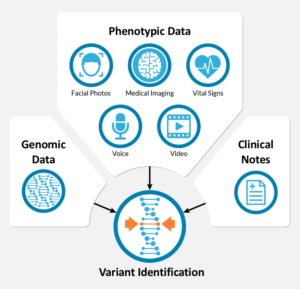HIMSS Conference, Microsoft booth
Thursday, March 7 3:40 PM PST
Las Vegas, Nevada

As over 40,000 health IT professionals, clinicians, executives and vendors from around the world gather at this year’s HIMSS Annual Conference & Exhibition, speaker Anthony Antonuccio, VP of Product at FDNA shares FDNA’s experience with one of the leading clinics, Greenwood Genetic Center (GGC) in his talk, Precision Medicine Through Next-Generation Phenotyping—A Customer’s Journey. Discover how integration of FDNA’s facial analysis technology into GGC’s genetic evaluation workflow has led to the expansion of knowledge around countless rare diseases by the evaluation of over 40 years of data and over 40,000 patients seen.
FDNA’S Face2Gene TECHNOLOGY
FDNA is the developer of Face2Gene, a clinical suite of phenotyping applications that facilitates comprehensive and precise genetic evaluations. Precision medicine aims to personalize healthcare, factoring in individuals’ traits—genetics, lifestyle, etc.—to develop targeted approaches to diagnosis, treatment and prevention for patients. Face2Gene uses facial analysis, deep learning and artificial intelligence to transform big data into actionable genomic insights to improve and accelerate diagnostics and therapeutics. With the world’s largest network of clinicians, labs and researchers creating one of the fastest growing and most comprehensive genomic databases, FDNA is changing the lives of rare disease patients. For more information, visit www.FDNA.com.
GREENWOOD GENETIC CENTER
The Greenwood Genetic Center has recently partnered with FDNA to collaborate using next generation phenotyping technology, Face2Gene. With the aid of FDNA’s facial analysis and artificial intelligence technology, analysis of nearly 80,000 cases from Greenwood Genetic Center will contribute to the ever-expanding database of rare disease information. With the large influx of cases from GGC now analyzed by Face2Gene, insights for a myriad of undiagnosed patients and syndrome-related features have contributed to advancements in research of rare diseases. For more information, visit www.GGC.com.
